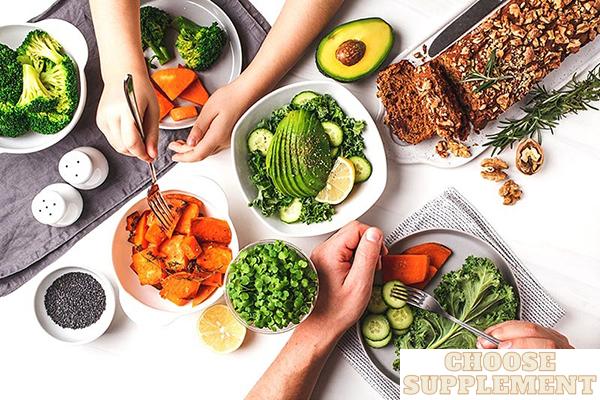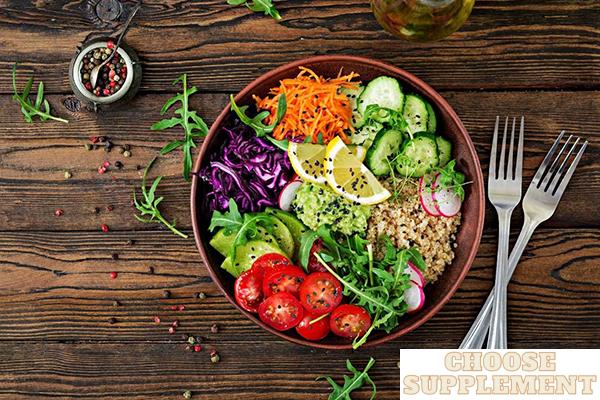You ever hear someone say, “Drink your milk, it’ll make you taller!”? Yeah, me too. It’s one of those things that gets drilled into us as kids—like height is something you can control if you just eat the “right” stuff. But then, at some point, someone switches to a vegetarian or even fully plant-based diet and the question hits: does vegetarian food help or hurt your chances of growing taller? And honestly, it’s a fair question.
Because height development isn’t just luck or genetics (though that’s a huge part of it). It’s also about hormones, nutrients, and how your body uses them—especially during adolescence when growth hormone levels are doing their thing, bones are stretching, and puberty throws everything into overdrive. And here’s the thing: protein, calcium, iron, zinc—these aren’t optional. They’re the raw materials your body needs to build, quite literally, your frame.
What I’ve found is, the debate around vegetarianism and height often skips over the nuance. It’s not just about what you eat, but how well your diet supports your body’s growth blueprint.
Now, let’s dig into what the science—and a bit of lived experience—actually says about vegetarianism and how it intersects with human growth.
Nutritional Foundations of Growth: What Your Bones (and Hormones) Actually Need
Here’s the thing—height doesn’t just happen. It’s not magic, and it’s not purely genetics either. Your body builds itself with raw materials, and if those materials aren’t in your diet, well… your growth potential takes a hit. Especially during adolescence, when everything from bone density to collagen synthesis is ramping up, nutrition becomes non-negotiable.
What I’ve learned (both from research and from years of trying to “eat smart” on a vegetarian diet) is that the following nutrients play a central role in height development:
- Protein – This one’s obvious, but under-consumed. Aim for complete proteins or pair plant sources. Lysine, in particular, is a must for bone growth. I lean heavily on lentils and quinoa.
- Calcium – Not just from dairy. Think leafy greens, tahini, fortified plant milks. It’s essential for bone formation, but only if paired with…
- Vitamin D – Without it, calcium isn’t absorbed properly. I supplement in winter (I live in Canada—it’s basically a calcium trap half the year).
- Zinc – A quiet hero. It supports growth hormone production. Pumpkin seeds are my go-to.
- Iron – Especially plant-based iron, which has lower bioavailability. Pair it with vitamin C to boost absorption. (I’ve learned this the hard way—low iron will tank your energy.)
Now, nutrient density matters more than just calories. And while no single food is a miracle, I think getting these right stacks the odds in your favor if height is still on the table.

Understanding the Different Types of Vegetarian Diets
I remember when I first went vegetarian—people kept asking, “Wait, do you still eat eggs? What about cheese?” And honestly, I didn’t even have a clear answer at first. That’s when I realized just how many types of vegetarian diets there are, and how different they can look on your plate.
Here’s a quick breakdown of the main types (with some thoughts from my own experience trying them out):
- Lacto-vegetarian – Includes dairy, excludes eggs and meat. Think yogurt, paneer, and a lot of creamy curries. This is pretty common in South Asian households—I actually ate this way for a few years without knowing it had a name.
- Ovo-vegetarian – Includes eggs, no dairy or meat. Scrambled eggs became my go-to protein here, but finding non-dairy baked goods took a bit of trial and error (a lot of almond milk flops before I found oat milk).
- Lacto-ovo vegetarian – Eggs and dairy are both on the table, but no meat. Probably the most flexible version, and what most people think of as “vegetarian.” If you’re still new to plant-based eating, this is a super manageable place to start.
- Vegan – No animal products at all. That means no eggs, no milk, no honey. I’ll be honest—this one takes planning. I leaned hard on tofu, lentils, leafy greens, whole grains, and fortified dairy substitutes (some of which are hit-or-miss taste-wise).
What I’ve found is that plant-based eating isn’t one-size-fits-all. It’s a spectrum—and where you land really depends on your body, beliefs, and honestly, your grocery budget.
Protein Quality in Vegetarian Diets: Getting the Right Amino Acids for Growth
When I first shifted to a vegetarian diet, I thought I was getting enough protein—lots of beans, oats, peanut butter, you name it. But what I didn’t realize (until I hit a wall in strength gains and, oddly, energy levels) was that protein quality matters just as much as quantity, especially if growth—muscle, height, recovery—is your goal.
See, not all plant proteins are “complete,” meaning they don’t contain all nine essential amino acids your body needs for protein synthesis. That’s where complementary proteins come in. You mix and match, and boom—your body gets what it needs.
Here are a few go-to combos and sources I’ve found actually work:
- Quinoa and soy – Both complete proteins. I rotate these in regularly (tofu stir-fry is a weekly thing).
- Rice + lentils – Classic combo. Together, they fill each other’s amino acid gaps. Tastes better than it sounds, especially with spices.
- Chickpeas + whole grains – Think hummus on whole grain toast. Bonus: leucine, the key for muscle and growth signaling.
- Hemp seeds and pea protein – My smoothie staples. They digest cleanly and cover your bases.
- Seitan – High-protein wheat-based option, great for texture if you’re missing meat. (Not gluten-free, obviously.)
What I’ve found is, with just a little planning, it’s totally doable to hit growth-supporting protein goals on a veg diet. But yeah—you’ve got to think beyond just “beans and greens.”

Calcium and Vitamin D in Vegetarian Nutrition
I’ll be honest—getting enough calcium and vitamin D as a vegetarian isn’t as simple as just cutting out meat and hoping for the best. I learned that the hard way when I started feeling unusually fatigued and had this nagging ache in my legs during the winter months. After some bloodwork and a stern look from my doctor, I got serious about bone health—specifically around calcium and vitamin D, which are kind of the backbone (pun fully intended) of preventing issues like early bone density loss or even rickets.
Here’s what’s actually worked for me:
- Fortified plant milks – I go for unsweetened soy milk or oat milk that lists at least 30% calcium per serving. Bonus if it has D3, not just D2 (better absorbed, especially in low-sun months).
- Mushrooms – Oddly enough, UV-exposed mushrooms can give you a little D boost. I don’t rely on them alone, but I do toss them in stir-fries often.
- Sunlight – Even 10–15 minutes a few times a week can help your body synthesize D. I try to walk during lunch breaks (though in February? That’s wishful thinking).
- Supplements – I resisted this for a while, but a plant-based D3 + calcium combo has been a game-changer. Especially since parathyroid hormone tends to kick in and leach calcium from bones when D levels dip.
What I’ve found is, you can absolutely thrive on a vegetarian diet—but you’ve gotta be intentional. These days, I track my intake weekly just to stay ahead of any dips.
Scientific Studies: What Research Actually Says About Vegetarianism and Height
So, here’s something that surprised me: despite all the loud opinions out there, the science on vegetarian diets and height isn’t as one-sided as you’d think. I went down the research rabbit hole a while back (a classic “let me fact-check this at 2 AM” moment), and honestly, the findings are a mixed bag—but not in a bad way.
Several longitudinal studies have tried to tease out whether vegetarian kids grow up shorter than their omnivore peers, and the results? Nuanced. Here’s what stood out to me:
- A UK study (over 9,000 kids) found that children raised vegetarian had slightly lower average heights at age 5, but the gap narrowed as they got older. (Sample size and socio-economic controls really mattered here.)
- One Indian clinical study showed no significant height differences between well-nourished vegetarian and omnivorous adolescents—but the vegetarians had more variability, likely tied to nutrient intake quality.
- WHO growth charts still serve as the baseline, but some vegetarian children fell just below 50th percentile growth in studies that didn’t account for fortified food access.
What I’ve learned? It’s not about plant-based vs. meat-based—it’s about nutrient coverage. If the diet’s dialed in, kids can absolutely hit their growth potential. But if it’s just pasta and toast? Yeah, that’s where problems start.
Can a Vegetarian Diet Support Maximum Height Growth?
So here’s the question I used to obsess over when my niece started eating plant-based: Is she going to be shorter because of this? It’s something a lot of parents quietly wonder, and I totally get it. But after digging through pediatric research, comparing growth charts, and actually sitting down with a dietitian friend who works in school-age nutrition, here’s what I’ve found: a vegetarian diet doesn’t limit height—as long as it’s done right.
There’s no magic food that makes you grow tall, but there are real risks if the diet lacks balance. Nutritional gaps—especially during growth spurts—can slow down height-for-age progression or even lead to stunting in extreme cases.
What works? Here’s what I’ve learned from both research and real-world trial and error:
- Prioritize protein daily – Not just quantity, but quality. I pair grains and legumes constantly (quinoa + black beans is a weekly staple).
- Plan calcium + vitamin D intake intentionally – A non-negotiable for bone development. Fortified plant milks have saved me.
- Watch nutrient timing – I used to overlook this, but spacing iron and calcium helps with absorption.
- Include zinc and B12 – These are often forgotten, but they matter. I keep a basic multivitamin in rotation just in case.
Height Optimization Tips for Vegetarians
If you’re raising a vegetarian child or you’re a teen trying to reach your full height potential on a plant-based diet—first off, yes, it’s absolutely doable. But in my experience (and I’ve been through the meal-prepping, label-reading trenches), you can’t wing it. Growth is time-sensitive, and getting the right nutrients at the right time makes a real difference.
Here are some practical, evidence-based tips that have worked for me and the families I’ve worked with:
- Work with a dietitian – Honestly, even one session can make a big difference. They’ll help you catch blind spots and suggest age-appropriate supplementation.
- Include variety daily – The more colorful the plate, the better. Rotate legumes, grains, nuts, seeds, leafy greens. Food diversity covers gaps you didn’t even know were there.
- Don’t skip supplements – In particular:
- Vitamin B12 (non-negotiable)
- Omega-3 ALA or algae-based DHA
- Zinc (especially during puberty)
- A solid multivitamin if appetite or variety is limited
- Track growth every 3–6 months – I like using WHO growth charts. Not to obsess over numbers, but to spot any slow-downs early.
- Get labs done annually – Ferritin, B12, vitamin D—don’t wait for fatigue or stalling growth to show up.
What I’ve learned is, meal prep matters just as much as meal content. The families who batch-cook, shop with a list, and plan snacks around nutrients—those kids thrive.
Hi there! My name is Erika Gina, and I am the author of Choose Supplement, a website dedicated to helping people achieve their height goals naturally and effectively. With over 10 years of experience as a height increase expert, I have helped countless individuals increase their height through diet, exercise, and lifestyle changes.
My passion for this field stems from my own struggles with being short, and I am committed to sharing my knowledge and experience to help others overcome similar challenges. On my website, you will find a wealth of information and resources, including tips, exercises, and product reviews, all designed to help you grow taller and improve your confidence and overall well-being. I am excited to be a part of your height journey and look forward to supporting you every step of the way.
Name: Erika Gina
Address: 2949 Virtual Way, Vancouver, BC V5M 4X3, Canada
Email: [email protected]



